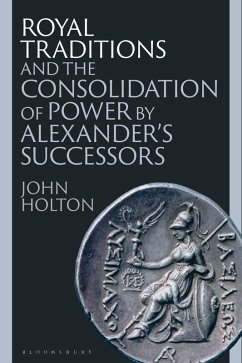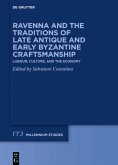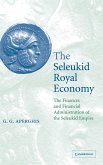In the wake of Alexander the Great's death, his ambitious Successors sought to solidify their positions as kings and establish a framework of new royal traditions. John Holton delves into the interconnected strategies employed by Antigonus, Demetrius, Ptolemy, Seleucus, Lysimachus and Cassander, as well as their heirs, as they consolidated their royal power between 323 and 276 BC. Through a wide-ranging examination of royal ideology and its formative impact, a set of studies explores the significance of discursive power in the new kings' toolkits, the wide spectrum of god-king relations that were developed to project royal status, the innovative development of father-son joint kingship as a successional mechanism, and the symbolic means for supporting the translation of power to a second generation of kings. Set against the backdrop of a rapidly evolving political landscape in the early Hellenistic world, this volume offers invaluable insights into the transition from Alexander's single empire to a multipolar world of competing royal dynasties. This period was in turn foundational for the longer-term institution of Hellenistic kingship, which played a pivotal role in in the history of ancient Greece and the near east. By bringing the Successors into a single discussion, with a comparative perspective and detailed studies of diverse evidence, Holton provides a fuller picture of the origins of Hellenistic royal practice.
Hinweis: Dieser Artikel kann nur an eine deutsche Lieferadresse ausgeliefert werden.
Hinweis: Dieser Artikel kann nur an eine deutsche Lieferadresse ausgeliefert werden.








